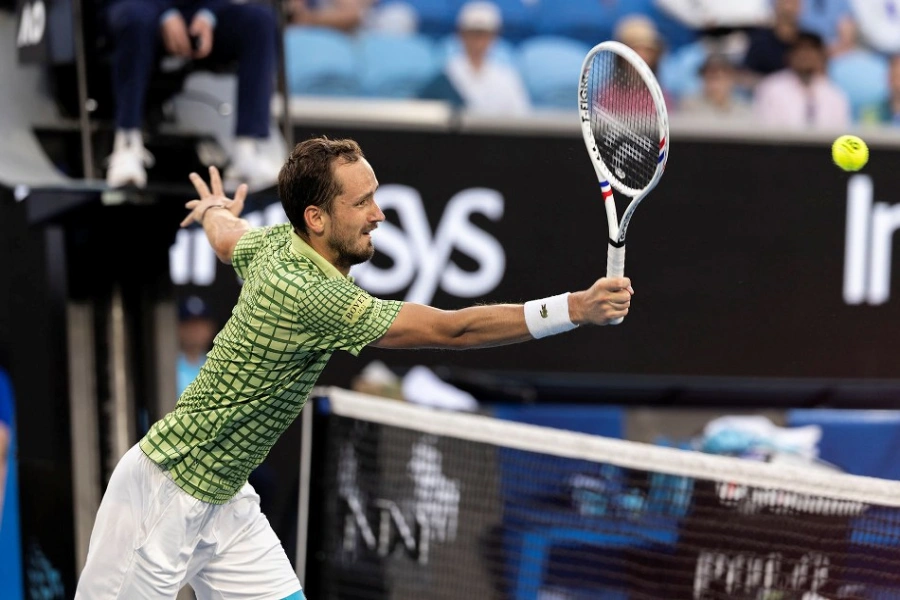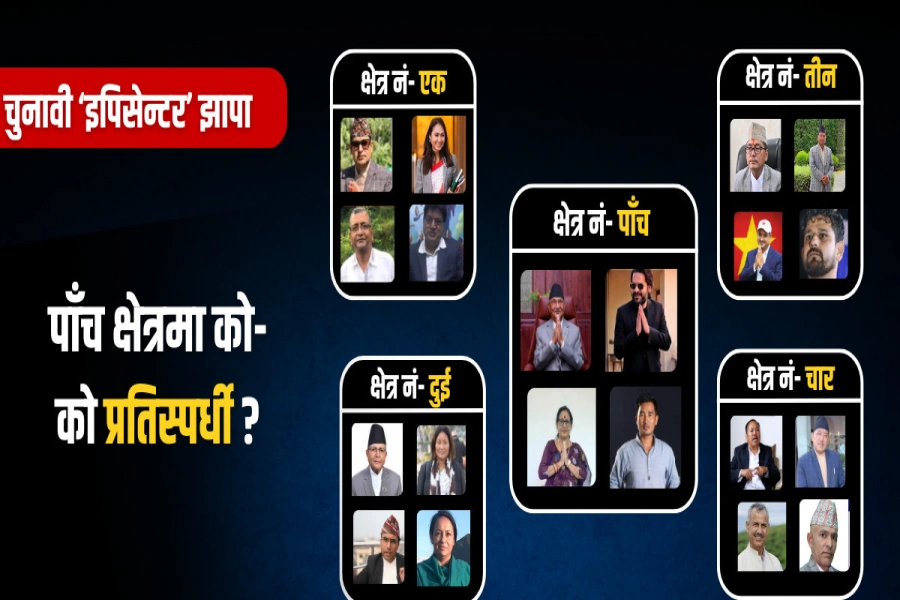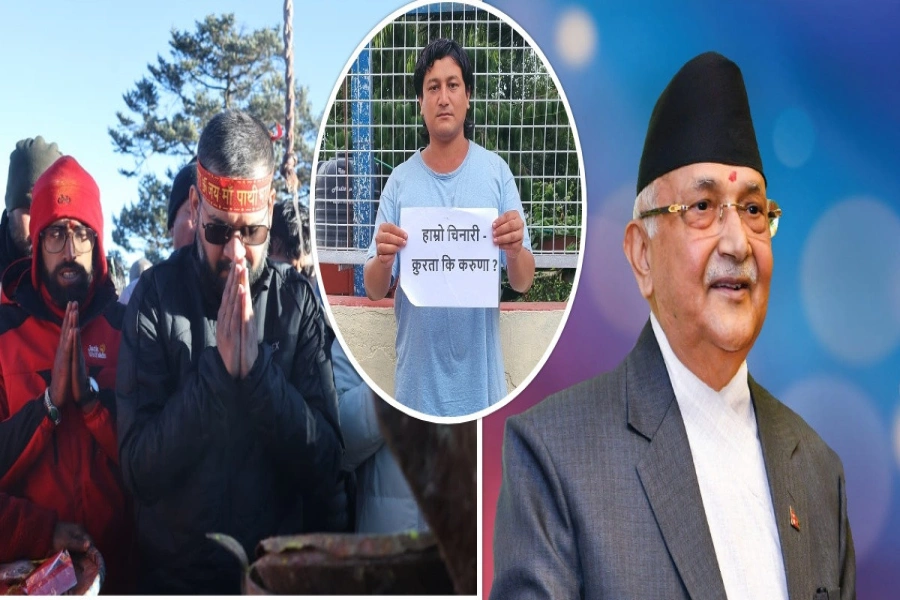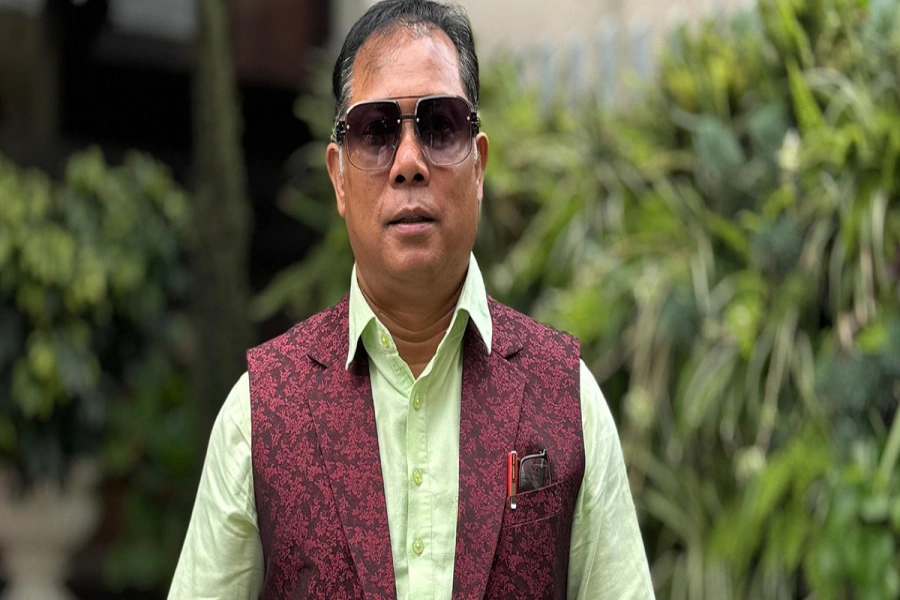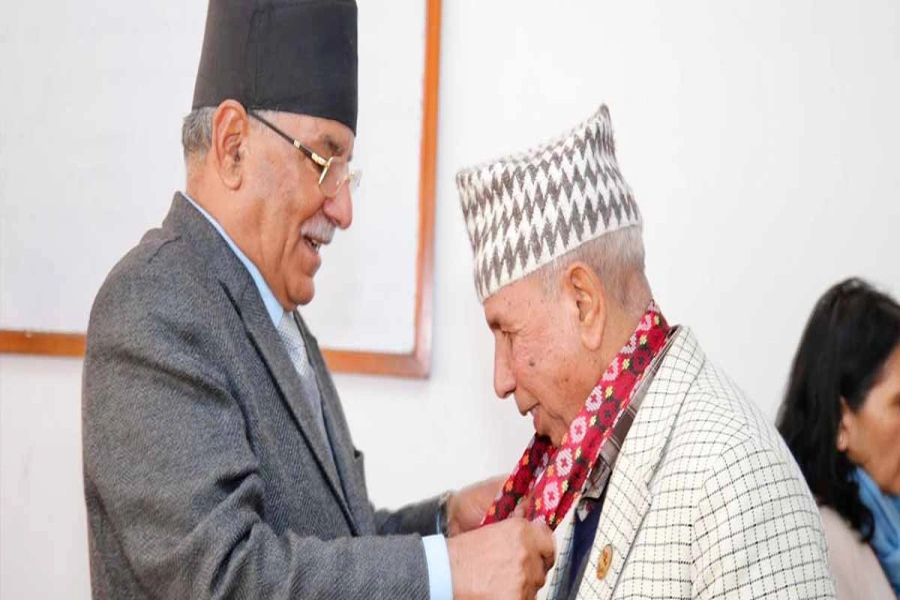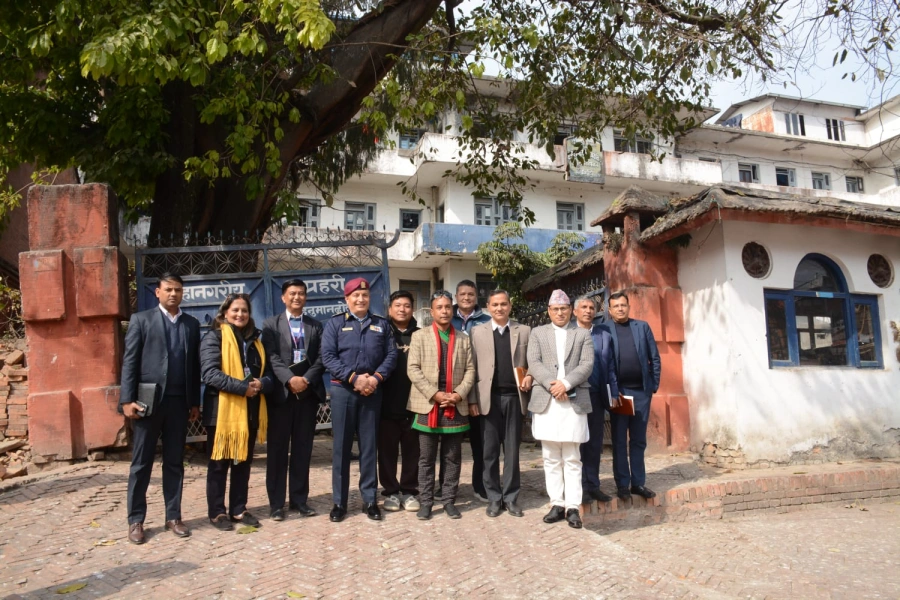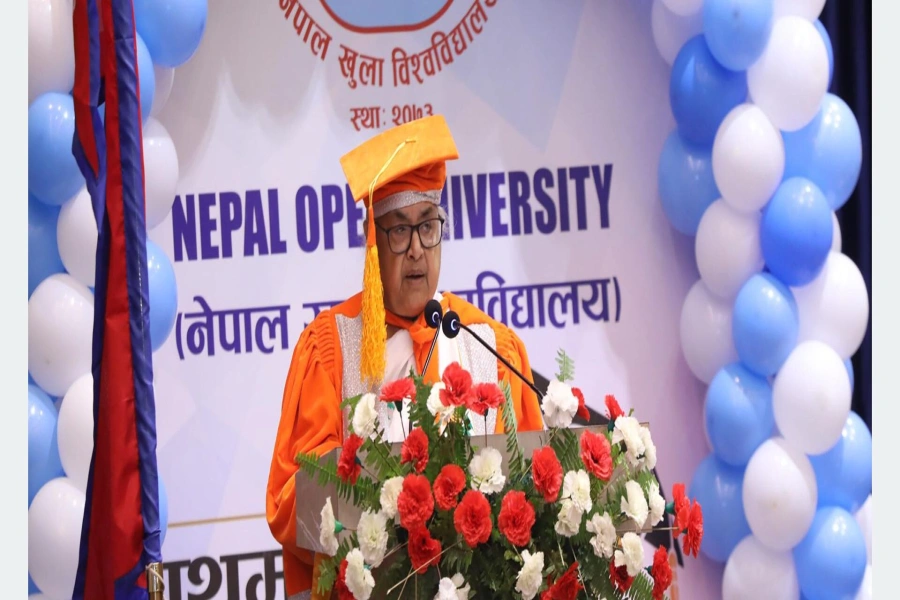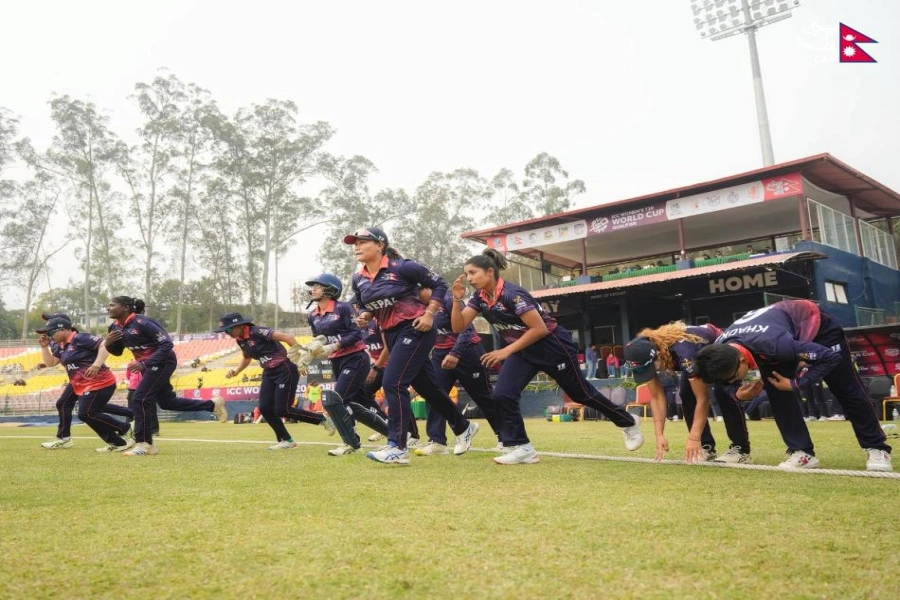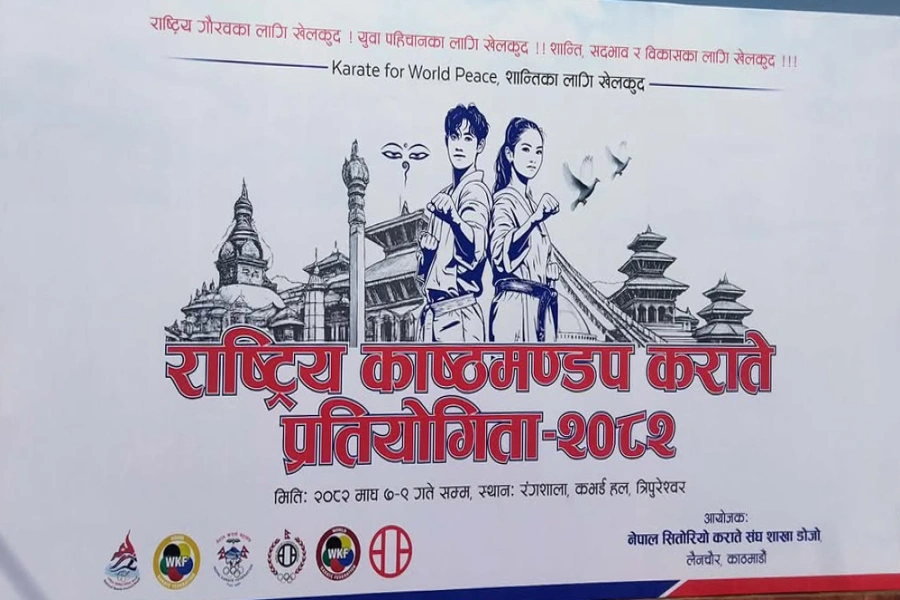The strategic significance of Nepal’s geographic location will soar on account of China’s economic superpower status and India’s vast potential for emulating China
As many as 30 Chinese NGOs were registered at one go in Kathmandu earlier this month, in a clear announcement of Beijing’s intention to diversify the channels of its activity in Nepal. India-backed think-tanks and their ilk are also trying to define with renewed vigor bilateral issues as per the Indian government’s ideas and interests. This has happened when the Eminent Persons’ Group (EPG) comprising nominees from both the countries has already filed its joint report to respective governments. Like it or not, the final say on it will be India’s. New Delhi sees open border as a strategic provision while most Nepalis reject the 1950 Treaty for aggravating their country’s vulnerability.
When it comes to the two giant neighbors, the question is whether Nepal will be allowed to live as an independent and sovereign nation with due dignity. India does not want to take note of Nepal’s independence “since time immemorial” because it reminds it of many centuries of foreign rule.
As if this were not enough, efforts might be brewing to clip Nepal’s wings permanently. An Indian news daily attributes to China a proposal termed “2+1 format for India talks”, an idea said to have been broached during Prime Minister KP Oli’s visit to China in June. Quoting an unnamed “official source”, The Hindu reported that “China-Nepal ties would be docked with India’s shared interests as well.” Apparently, the news was based on India’s External Affairs Ministry briefing as a “deep background”, which means not naming the specific source in any way. This is a typical working style prescribed by CIA as textbook to its staff members during the Cold War decades.
Cuts both ways
Chinese and Indian governments cannot overlook third party interests finding a fertile ground in Nepal for harvesting elements willing to work against the big neighbors’ core interests. If the said proposal were indeed being mulled, it would mean New Delhi conceding that Beijing’s presence in Nepal will be wider and deeper, and hence an additional space for the communist country which until recently was hardly recognized as Nepal’s other significant neighbor.
Un-bear-able! Cubs get locked in van, honk horn to get out

Nepal could be under the stranglehold of its two big neighbors if it wished to expand international ties to meaningful levels. For, its two neighbors making a joint move on all major issues would mean immense power between them to override Nepal’s basic sensitivities. Desperate situations lead to desperate decisions. Under the circumstances, any independent leadership in Nepal would be receptive to proposals and strategies developed beyond the Indian Ocean if they served Nepal’s core interests.
Independent India’s first Prime Minister Jawaharlal Nehru said in 1947: “Whatever policy you may lay down, the art of conducting the foreign affairs of a country lies in finding out what is most advantageous to the country. We may talk about international goodwill and mean what we say. But in the ultimate analysis, a government functions for the good of the country it governs and no government dares do anything which in the short or long run is manifestly to the disadvantage of that country.” This provoked the former Secretary of State of the United States, Henry Kissinger, to make a cryptic comment: “Kautilya (and Machiavelli) could not have said it better.”
Recent twists and turns in media houses, investment flow and renewed vigor in mobilizing political activists funded as civil society leaders and experts in Nepal are developments to be closely watched. Looking outward within and beyond the vicinity is the new reality for regular reference and better understanding of the emerging realities. In the Panchayat days, New Delhi had Surya Bahadur Thapa in the party-less camp and Girija Prasad Koirala in the multiparty camp. Koirala proved his role in the crucial immediate aftermath of the 2006 political changes which introduced “achievements” that had not figured during the course of the protest movement. His utility over, Koirala could not realize his hope of becoming Nepal’s first president.
China’s policy is multilayered and nuanced. Its ties are with Nepal, the state, not with party leaders who come and go, changing their colors like chameleons. Oli’s desperate tilt to Beijing during the 2015-16 India-imposed trade blockade created for him an image of a super-nationalist. To the Chinese, he is now a ghost of that reputation. Nepal’s government having skipped Boao and Shanghai Cooperation Organization (SCO) conferences was confirmation of which way the Nepali communists are turning to, and hence Beijing’s search for a reliable, credible and uninterrupted power center in Nepal.
Nepal’s ambassador to China, Leela Mani Paudyal insists he was in the Chinese capital during the SCO meet and not with Foreign Minister Pradeep Kumar Gyawali. This only brings into sharp focus on the deliberate, and perhaps even provocative, slight on an initiative that Beijing places high priority on.
Asian age effects
Common points of agreement between Nepal’s two neighbors should distil a common course. Each of them has its own interests, but both realize that stability in Nepal is crucial to theirs. Those who pushed for “baby king” are now shut up by former King Gyanendra’s November 2017 statement that it was time that he became more active to set things right in the country.
He seems to be playing his cards carefully.
Dissatisfied with the existing state of affairs, sections of Nepali Congress and leftist groups are keen for yet new changes, but they aren’t prepared to stick out their necks in belling the cat. They want the former king “to make the first move”. The former monarch is understood to have bluntly reminded them: “It is not I who needs you but you who might need me.” Several political leaders of different parties, who have visited Nirmal Niwas in recent months, remark that, despite the stalemate, the former king sounds very confident. In that case, either the former king must be an extremely good actor or he carries the foreknowledge of dramatic events to unfold in the foreseeable future. His recent seemingly innocuous trip to Bangkok with grandchildren was not without political connectivity nor should his visit to India.
In diplomacy, governments regularly play to the gallery: they test the public and others seek to study; but they seek to find the real intention of a move floated as a trial balloon. Foreign Minister Pradeep Kumar Gyawali told his close circle that Indian Prime Minister Narendra Modi, during one-on-one talks in April, agreed to aid Oli’s government in projects, including waterways and railways. China’s emergence as an economic and political superpower will increasingly equip itself with massive leverage without overtly flexing its military muscle. The strategic significance of Nepal’s geographic location will soar on account of China’s economic superpower status and India’s vast potential for emulating China.
Fighting shy of facts
Trade and technology have altered the tide of bilateral, regional and international ties in the emerging golden ‘Age of Asia.’ The prospect of Asian Age as a benchmark of success in the coming decades disturbs and shakes those who have had a virtual monopoly in manufacturing universal values and prescribing global goals for the rest of the world.
The sway their money and military hardware had over an overwhelming majority of world population for two centuries and more might at last change course from the steps of South Asia and its neighborhood representing 40 percent of world population, including two of the world’s giant economies.
Political parties lose their sense of balance when catapulted to power or made to cool their heels in the opposition benches. This is best exemplified by Nepali Congress, which is out of depth after the 2017 defeat, and Nepal Communist Party (NCP), which goes out of breath on commanding a two-thirds majority in parliament.
On the eve of his departure for an official visit to China in June, Oli was quoted as saying any “deal with China will be in line with national interests”. Oli and predecessors recited similar statements also when visiting India—that no agreement would be signed that would adversely affect national interests. In May, Oli used another hackneyed line, “Nepal won’t play one neighbor against another.” That might have been a reference to the Panchayat decades.
If so, King Mahendra and King Birendra deserve praise for their audacity and capacity to play one giant neighbor against another, and survive while maintaining national integrity and independence.



